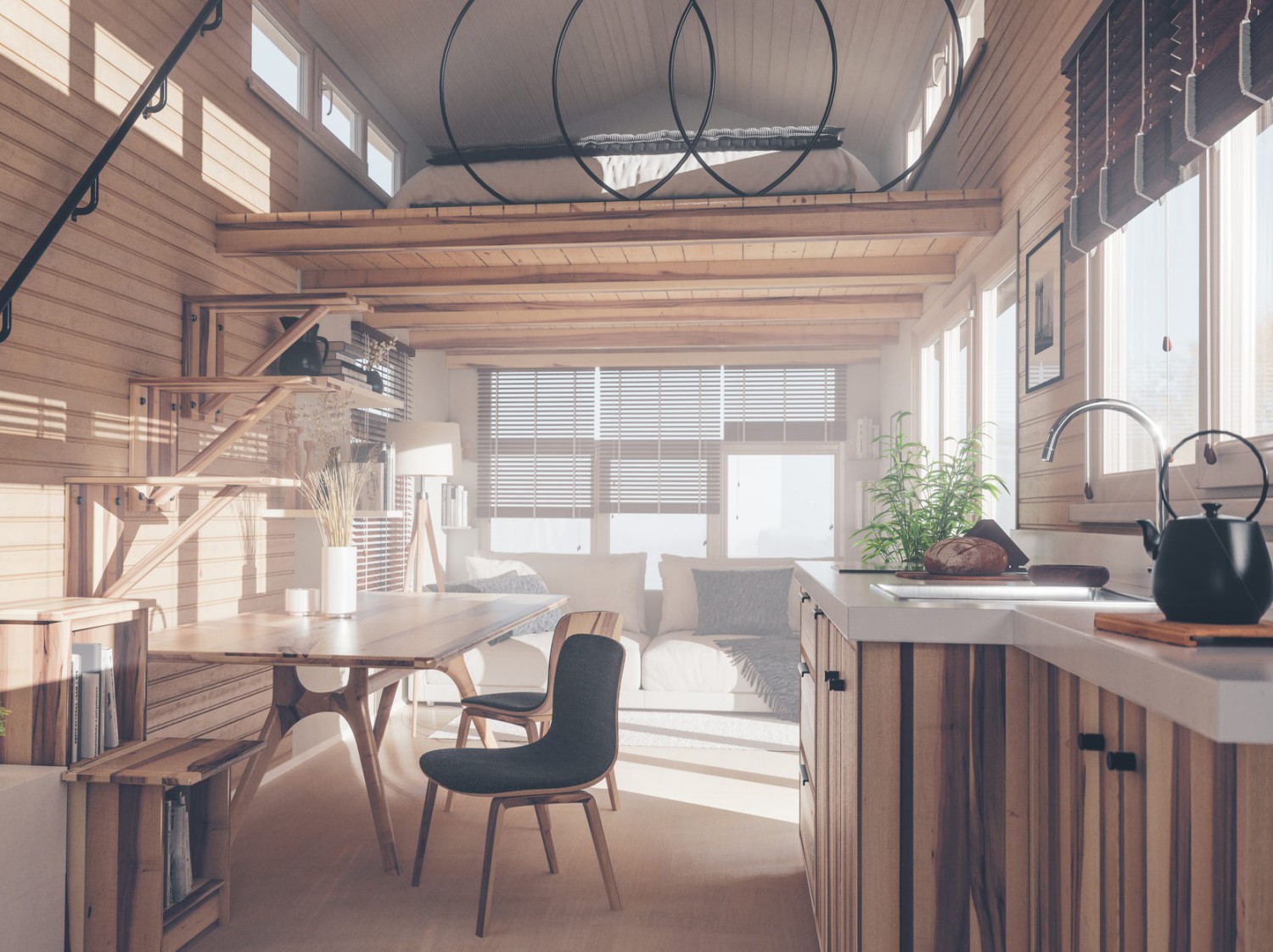
The term prefabricated home designates any house manufactured in a factory setting and then transported to a residential lot. This includes modular and mobile homes.
It is sometimes difficult to tell one from the other simply by looking at them as they can appear quite similar. Recent models can also resemble more traditional homes, that is to say those that are built from the ground up on the residential lot. The difference lies in how these houses are assembled and on whether they have a foundation or not.
Modular Homes
This type of house is almost entirely factory-made prior to being transported to its residential lot (close to 90%). The various constructed sections are carried to the site and assembled there. The electrical wiring, the plumbing and HVAC systems are then connected. A modular home can be erected on a regular foundation allowing the residence to have a full basement or crawlspace, thus making it a permanent dwelling.
The sections are fully customizable according to the owners’ wishes. The more changes made to the original floor plan, the higher the cost, however, but people who purchase this type of home really appreciate the flexibility this construction method offers. Buyers can add rooms, even entire floors. The possibilities are endless! There is also the option of assembling the house on top of a basement for extra living space below ground level.
Mobile Homes
As the name implies, a mobile home is technically “portable” and can therefore be transported from one location to another. It is entirely factory-built and delivered directly to the site, without the need for a foundation. All that’s left for the owner to do is have it connected to the municipal sewer and power services and move in!
Tiny houses, which are becoming more widespread, fall within the category of mobile homes. Usually installed on a wheeled trailer so they can be easily moved, tiny houses have gained fans as much in cities to increase urban density, as in the woods by people wanting to have a modest functional cottage. Even when the mobile home’s dimensions preclude it from being considered a tiny house, this type of dwelling is typically smaller than a modular residence.
What Advantages Do Prefabricated Homes Offer?
Mobile homes and modular homes both provide similar advantages. The first is that because they are manufactured in a factory, they are far more affordable to build than traditional houses as there are no delays due to temperature and bad weather. Secondly, the blueprints for prefabricated homes are often standardized, achieving significant economies of scale. Owners can tailor the interior to their tastes with custom finishes.
Another advantage the owners of prefabricated homes love is the quick order turnaround. The house can be delivered within a few weeks thanks to the surprisingly rapid manufacturing process. A basic modular home (with simple to connect sections) can be assembled on the build site in a single day.
Will the appeal of prefabricated houses continue to grow? Their many benefits certainly seem to have convinced those who have purchased this type of home.